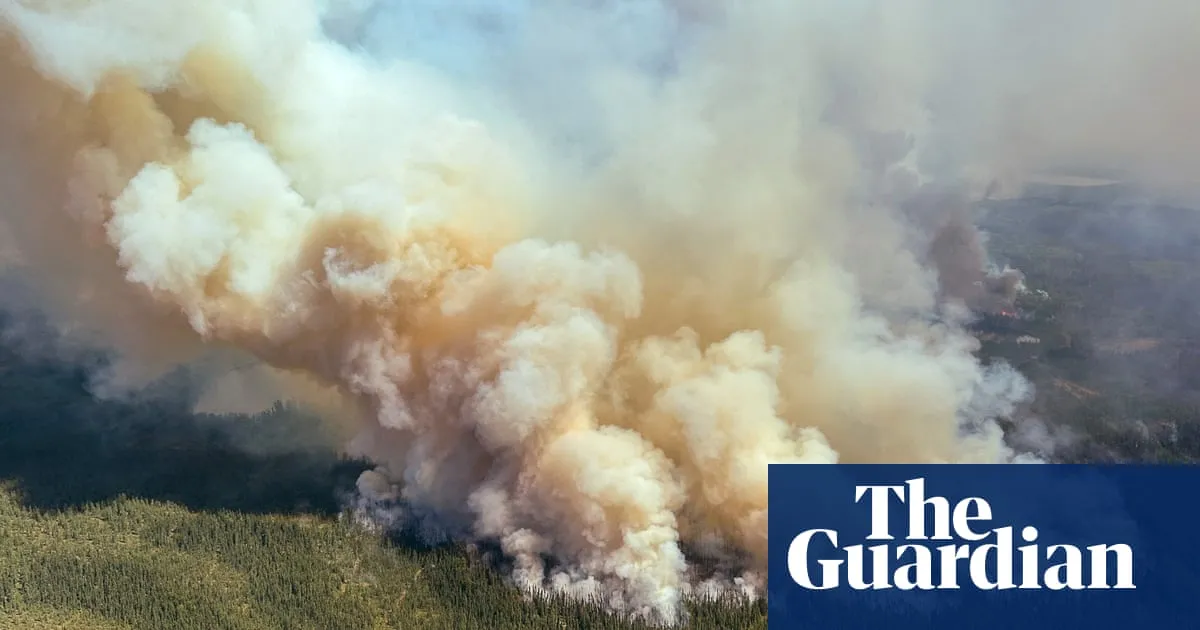
This week, enormous early-season wildfires have erupted across the prairie provinces of Canada, significantly straining local emergency services and posing a serious threat to air quality across eastern North America. The largest fires, namely the Bird River fire and the Border fire, remain completely uncontained in northern Manitoba. This year alone, wildfires have scorched approximately 200,000 hectares in Manitoba—three times the province's recent annual average.
More than 17,000 residents are currently being airlifted from wildfire zones by the Canadian military, as some areas have lost all safe overland routes. In response to the escalating situation, Manitoba Premier Wab Kinew declared a province-wide state of emergency on Wednesday, followed by Saskatchewan's Premier Scott Moe, who made a similar declaration on Thursday. “This is the largest evacuation Manitoba will have seen in most people’s living memory,” Kinew stated during a press conference. “For the first time, it’s not a fire in one region; we have fires in every region. This signifies a changing climate that we must adapt to.”
First Nations in Saskatchewan have been particularly hard-hit, with entire communities evacuated and often stranded due to road closures caused by unsafe conditions. Drone footage released by CBC has shown dramatic scenes of towering flames and charred homes in northern Saskatchewan. In addition, wildfires are also rampant in Alberta’s oil country, disrupting oil production and prompting further evacuations.
Recent satellite imagery has revealed alarming fire behavior, including pyrocumulus clouds, which until recently were rarely seen in northern Canada—especially during the early fire season. These clouds indicate particularly intense fires and can propel smoke high into the atmosphere, allowing it to travel vast distances. Consequently, the US National Weather Service has issued air quality alerts for parts of Minnesota, particularly between Lake Superior and the Canadian border, as smoke continues to drift into the United States.
Weather forecasts indicate that smoke will continue to impact air quality in cities like Chicago, Detroit, and Washington, D.C. The air quality index in these areas could reach the “red” category, indicating unhealthy conditions for all groups with an index exceeding 150. A prolonged period of unusually warm and dry weather has exacerbated this week’s wildfires, continuing a trend intensified by climate change.
Wildfire seasons in 2023 and 2024 are on track to be the worst in Canadian history. Notably, in June 2023, smoke from these Canadian wildfires turned the skies over New York City orange, making its air quality the worst globally at that time. According to the latest assessments from Natural Resources Canada, fire conditions are reaching critical levels across regions where wildfires are out of control. Government forecasts warn that fire seasons in Manitoba, Saskatchewan, Alberta, and British Columbia will remain well above average for the remainder of spring and summer.
The health implications of wildfire smoke are becoming an increasingly pressing area of research. A recent study has revealed that exposure to fine soot particles from wildfire smoke can adversely affect heart and lung health for months after the smoke dissipates. Other studies indicate that wildfire smoke heightens the risk of stroke, impairs brain function, and may interfere with fertility treatments. Alarmingly, these studies suggest there is no safe level of exposure to wildfire smoke, which can be up to 10 times more toxic than typical urban air pollution. New data indicates that thousands of people die annually from wildfire smoke in the US, resulting in billions of dollars in economic costs.